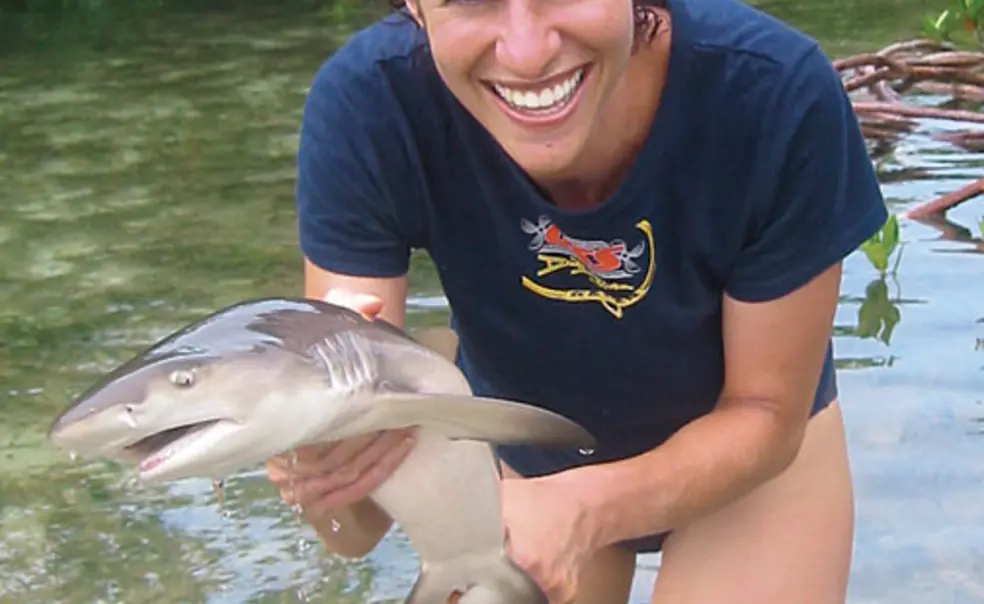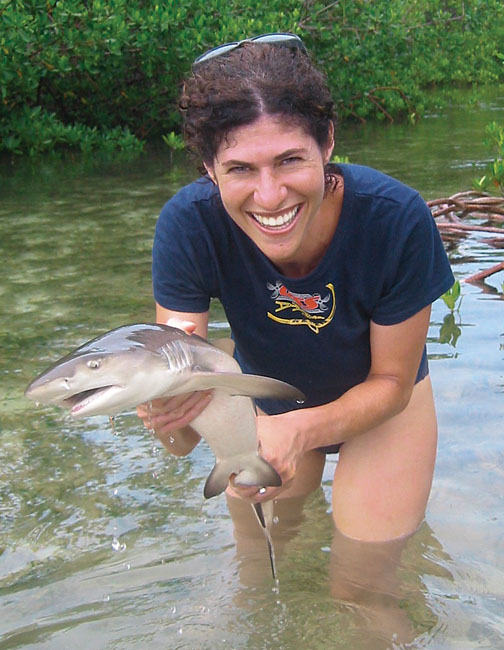Juliet Eilperin ’92’s second book is the perfect summer beach read. Or perhaps not.
Demon Fish follows sharks, the scientists who study them, the fishermen who hunt them, and the hapless swimmers who learn the hard way how efficient the ocean’s top predators can be, into the waters off five continents. Along the way, Eilperin swims with her subjects on several occasions. (Yes, she was scared.)
But Eilperin’s book — part cultural history, part environmental advocacy — has a serious point: At the very moment we’re starting to understand sharks scientifically, we’re endangering their existence as never before.
“This is a pivotal moment for sharks,” says Eilperin, whose book is being published by Pantheon Books this month.
For years scientists ignored sharks, focusing research efforts on more commercially valuable fish, says Eilperin, who covers the environment for The Washington Post. But a burst of scientific interest over the past 10 years, combined with advances in technology, has created a burgeoning field of shark-related research. Shark life takes place exclusively under water — often at great depths and over great distances — and satellite tags have made it possible to track migration, mating, and hunting patterns in ways that research via scuba diving could not.
At the same time, the popularity of shark fin as a culinary status symbol in China, the growing trade in shark-fishing tourism, and the vast numbers of sharks accidentally caught in commercial fishing nets mean that researchers and fishermen alike know sharks are in rapid decline.
“When you start depleting the sharks, everything lower down along the food chain gets out of whack,” Eilperin says. A threat to sharks not only is bad for the environment, it’s bad for international fishing, too: A drop in the shark population creates a boom in mid-level predators, who in turn eat commercially valuable shellfish.
There are approximately 500 shark species, and Eilperin’s cast of human characters, while not as numerous, is similarly varied. Among the many people she describes is Sonny Gruber, a shark researcher in the Bahamas who can “hypnotize” a small lemon shark. Eugenie Clark, an octogenarian who still dives, regales Eilperin with a story about riding the back of a whale shark as it plunged deep underwater. And there’s Luis Muñoz, a Mexican fisherman who for years has supported his family through shark fishing. As the sharks have become scarce in the waters around his home, he is considering a switch to shark tourism.
It’s hard to rally the public on behalf of a species that has its own terrifying soundtrack. Eilperin’s book refers to a 2008 advertising campaign that pointed out that only four people the previous year had been killed by sharks — while nearly 800 fell victim to defective toasters. Yet most people don’t shy away from warming up breakfast.
Protecting sharks is possible, Eilperin says. Technological developments like waxy gel shark repellent applied on fishing lines could prevent sharks from accidentally getting hooked, while policy regulations that would require fishermen to land an entire shark and not just plunder the fin would make intentional catches considerably more expensive.
Anne Ruderman ’01 is a Yale University Fox International Fellow in Paris.













No responses yet